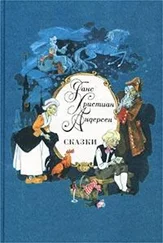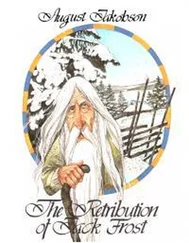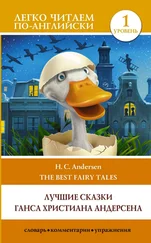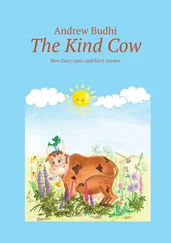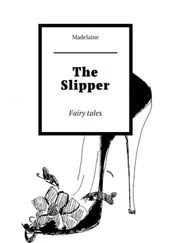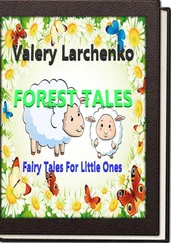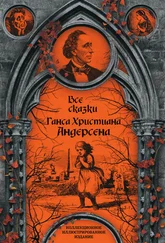Ганс Андерсен - Fairy Tales
Здесь есть возможность читать онлайн «Ганс Андерсен - Fairy Tales» весь текст электронной книги совершенно бесплатно (целиком полную версию без сокращений). В некоторых случаях можно слушать аудио, скачать через торрент в формате fb2 и присутствует краткое содержание. Жанр: Старинная литература, на английском языке. Описание произведения, (предисловие) а так же отзывы посетителей доступны на портале библиотеки ЛибКат.
- Название:Fairy Tales
- Автор:
- Жанр:
- Год:неизвестен
- ISBN:нет данных
- Рейтинг книги:4 / 5. Голосов: 1
-
Избранное:Добавить в избранное
- Отзывы:
-
Ваша оценка:
- 80
- 1
- 2
- 3
- 4
- 5
Fairy Tales: краткое содержание, описание и аннотация
Предлагаем к чтению аннотацию, описание, краткое содержание или предисловие (зависит от того, что написал сам автор книги «Fairy Tales»). Если вы не нашли необходимую информацию о книге — напишите в комментариях, мы постараемся отыскать её.
Fairy Tales — читать онлайн бесплатно полную книгу (весь текст) целиком
Ниже представлен текст книги, разбитый по страницам. Система сохранения места последней прочитанной страницы, позволяет с удобством читать онлайн бесплатно книгу «Fairy Tales», без необходимости каждый раз заново искать на чём Вы остановились. Поставьте закладку, и сможете в любой момент перейти на страницу, на которой закончили чтение.
Интервал:
Закладка:
“Your brother, the one you called the poorest, whose honest work you considered lowest, gives you his heavenly mite. You will not be turned away. You will be allowed to stand out here and think things over, try to promote your life down there, but you won’t get in before your good deeds have accomplished— something! ”
“I could have said that better,” thought the critic, but he didn’t say it out loud, and that was already really something.
WHAT ONE CAN THINK UP
THERE WAS A YOUNG man who was studying to be a writer. He wanted to become one by Easter, get married, and live by his writing. He knew it was just a question of hitting on something. But he couldn’t think of anything. He was born too late. Everything had been examined before he was born. Everything had been written about.
“Those lucky people who were born a thousand years ago!” he said. “They could become immortal! Even those born a hundred years ago were lucky. There was still something to write about then. Now there’s nothing in the world left to write about, so what can I write about?”
He mulled and stewed over it to the point that he became ill, the miserable fellow. No doctor could help him, but maybe the wise woman could. She lived in a little house by the gate that she opened up for those driving or riding on the road. But she was able to open much more than the gate. She was wiser than the doctor, who drove in his own coach and paid a tax because of his rank.
“I must go out and see her,” said the young man.
The house she lived in was small and neat, but drab to look at. There wasn’t a tree or a flower. There was a beehive outside the door—very useful! There was a little potato patch—very useful! There was also a ditch with blackthorn bushes that had flowered and set berries—bitter berries that purse the lips if they’re tasted before frost.
“It’s like an image of our prosaic times, I see here,” thought the young man, and that was a thought. A pearl he found by the wise woman’s door.
“Write it up!” she said. “Half a loaf is better than no bread. I know why you’re here. You can’t think of anything, but you want to be a writer by Easter.”
“Everything’s been written!” he said. “Our times aren’t like the old days.”
“No!” said the woman. “In the old days wise women were burned at the stake, and poets walked around with shrunken bellies and holes in their sleeves. Our times are good times—they’re the very best! But you aren’t looking at it the right way, nor have you sharpened your hearing. I’m sure you never say the Lord’s prayer in the evening either. There are all sorts of things to write and tell about here for those who are able. You can take stories from the earth’s plants and crops, scoop them up from the running and standing water, but you have to understand, understand how to catch a sunbeam! Now try on my glasses, put my hearing trumpet in your ear, pray to God, and stop thinking about yourself.”
The last part was very hard, and more than a wise woman could ask for.
He got the glasses and the ear trumpet and was positioned in the middle of the potato patch. She put a big potato in his hand. It was ringing. It rang out a song with words—the potato’s history—interesting. An everyday story in ten parts. Ten lines would have been enough.
And what did the potato sing about?
It sang about itself and its family—the potato’s arrival in Europe, and the lack of appreciation they had experienced and suffered before they, like now, were recognized as a bigger blessing than a nugget of gold.
“We were distributed at the city hall in all cities by order of the King. Our great importance was proclaimed, but people didn’t believe it and didn’t even understand how to plant us. One man dug a hole and threw a whole half bushel of potatoes into it. Another stuck a potato into the ground here and there and waited for them to shoot up like a tree that he could shake potatoes from. And there was growth, flowers, and watery fruit, but everything withered away. No one thought that the blessing lay under the ground—the potatoes. Well, we have had our trials and sufferings, that is to say, our ancestors—they and us, it makes no difference. What stories!”
“Well, that’s enough,” said the woman. “Look at the blackthorn! ”
“We also have close relatives in the potato’s homeland,” said the blackthorn bushes, “further north than they grew. Norwegians from Norway sailed west through fogs and storms to an unknown land where under the ice and snow, they found herbs and greenery and bushes with wine’s dark blue berries—sloeberries. They froze to ripe grapes, and so do we. And that country was called Vineland, Greenland, Sloethornland.”
“That’s a very romantic story,” said the young man.
“Come along,” said the wise woman and led him over to the beehive. He looked into it. What a hustle and bustle! There were bees in all the hallways beating their wings to bring a healthy breeze into the entire big factory. That was their job. From outside bees born with baskets on their legs came bringing flower pollen. It was shaken off, sorted, and made into honey and wax. They came and went. The Queen bee wanted to fly too, but then they would all have to fly along, and it wasn’t time for that yet. But since she wanted to fly, they bit the wings from her majesty, and then she had to stay put.
“Climb up on the embankment,” said the wise woman. “Take a look at the road, and all the folks there!”
“What a swarming throng!” said the young man, “Story upon story! Humming and buzzing! It’s too much for me! I’m going back!”
“No, go straight ahead!” said the woman. “Go right into the teeming crowd. Have an eye for them, and an ear—and yes—a heart too. Then you’ll soon think of something. But before you go, I must have my glasses and ear trumpet back.” And she took both of them.
“Now I can’t see anything,” said the young man, “and I can’t hear any longer.”
“Well, then you can’t be a writer by Easter,” said the wise woman.
“But when then?” he asked.
“Neither by Easter nor Pentecost! You can’t learn imagination.”
“But what shall I do to make my living by writing?”
“Oh, you can manage that by Shrove Tuesday! Become a critic! Knock down the poets. Knock down their writings—that’s just like knocking them. Just don’t be over-awed. Hit at them without ceremony. You’ll get enough dough to support both yourself and a wife!”
“You’ve hit upon the very thing!” said the young man, and he knocked down all the poets because he couldn’t become one himself.
We heard this from the wise woman. She knows what people can think up.
THE MOST INCREDIBLE THING
HE WHO COULD DO the most incredible thing was to have the King’s daughter and half the kingdom.
The young people—well, the old ones too—strained all their thoughts, tendons, and muscles over this. Two died from over-eating, and one drank himself to death. All trying to do the most incredible thing according to their taste, but that wasn’t how it was supposed to be done. The little street urchins practiced spitting on their own backs. They thought that was the most incredible thing.
On a pre-assigned day everyone was to produce what they had to show as the most incredible thing. The judges were children from the age of three all the way up to folks in their nineties. There was a whole exhibition of incredible things, but everyone soon agreed that the most incredible was a huge clock in a case, remarkably artistic both inside and out. At the striking of the hour, lifelike images appeared to show what time had struck. There were twelve performances in all with moving figures and song and speech.
Читать дальшеИнтервал:
Закладка:
Похожие книги на «Fairy Tales»
Представляем Вашему вниманию похожие книги на «Fairy Tales» списком для выбора. Мы отобрали схожую по названию и смыслу литературу в надежде предоставить читателям больше вариантов отыскать новые, интересные, ещё непрочитанные произведения.
Обсуждение, отзывы о книге «Fairy Tales» и просто собственные мнения читателей. Оставьте ваши комментарии, напишите, что Вы думаете о произведении, его смысле или главных героях. Укажите что конкретно понравилось, а что нет, и почему Вы так считаете.

![Ганс Андерсен - Ганс Чурбан[другой перевод]](/books/95480/gans-andersen-gans-churban-drugoj-perevod-thumb.webp)
